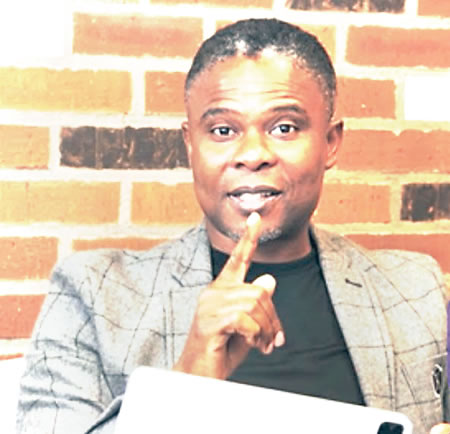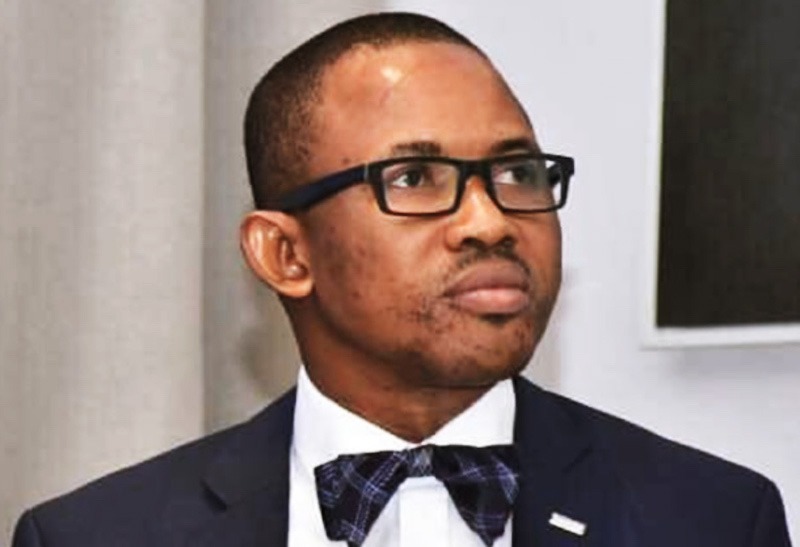Although hairstyles hold deep cultural significance in Nigeria, contemporary fashion has taken the centre stage among women. Against the backdrop of harsh economic situation, YETUNDE AJANAKU examines why most Nigerian women have taken to wigs.
NIGERIAN women are stylish and don’t hesitate to push their fashion sense to the next level, embracing global trends while infusing them with a uniquely Nigerian flair.
Among these trends is a significant shift in hairstyling preferences: many Nigerian women are opting for wigs over traditional braids. Once a cornerstone of Nigerian beauty and identity, braiding is now often set aside in favour of wigs that offer convenience, versatility, and protection for natural hair.
This change is more than just an aesthetic choice; it reflects evolving lifestyle demands, economic considerations and even social influences. Wigs offer Nigerian women an easy and efficient way to maintain a polished look, fitting into fast-paced urban lifestyles and allowing them to express individuality with ease.
For centuries, hair has held deep cultural significance in Nigeria, symbolizing identity, status and community. Traditional hairstyles, particularly braids, were celebrated for their beauty and complexity, often crafted to convey personal or cultural meaning.
For Nigerian women, braids have been an essential part of self-expression, with intricate designs passed down through generations. Braiding was more than just a beauty ritual—it was a social activity, bringing women together and fostering strong communal bonds. The style and complexity of one’s braids could reflect marital status, social standing, or tribal affiliations.
While traditional styles remained popular, exposure to international trends in the early 2000s introduced new hairstyling options to Nigerian women. As global beauty standards gained prominence, young women began experimenting with alternative hairstyles, from relaxed hair to extensions. This initial shift laid the groundwork for what would become a full-scale embrace of wigs. Influenced by fashion media, Nigerian women began to view hair not only as a means of cultural expression but also as a versatile fashion accessory that could be altered to reflect personal style
The growing preference for wigs in the country has increased demand for human hair, which is highly sought after for its natural look and durability. The most popular types are Brazilian, Peruvian, and Indian hair, each offering unique characteristics suited to different styling needs.
Brazilian hair, for instance, is known for its thickness and resilience, making it ideal for voluminous, long-lasting styles. Peruvian hair, in contrast, is lightweight yet full, offering a balance of comfort and volume, while Indian hair is prized for its natural luster and smooth texture, making it suitable for straight styles or soft curls.
With the demand for human hair wigs surging, prices have risen significantly, especially for premium-quality hair. The cost of a human hair wig can range from around N3 million for synthetic blends to over N500,000 for premium quality human hair options. These prices vary based on hair type, length, and grade. High-grade wigs made from authentic Brazilian or Indian hair are particularly expensive but highly sought after, as they offer the most natural look and durability.
The increasing demand for high-quality wigs has also fueled a competitive market. Vendors and suppliers strive to provide the best products, capitalizing on the growing trend and desire for long-lasting, fashionable wigs. This market demand has made human hair wigs a symbol of status and sophistication, with many Nigerian women willing to invest significantly in them.
Although wigs are popular, high-quality human hair wigs remain out of reach for many Nigerian women due to their prices. Authentic human hair wigs can be prohibitively expensive, particularly for women with lower incomes. This creates an economic divide in access to quality hair products, as some may feel pressured to buy lower-quality wigs that don’t last as long or don’t offer the same aesthetic appeal. The high price of wigs is a common critique, as it limits access to a trend that has become mainstream.
While wigs offer a means of self-expression, some people feel that wearing wigs, particularly in non-traditional styles, deviates from Nigerian cultural identity and beauty standards. Traditionalists argue that braiding, as a cultural staple, is being overshadowed by Western-inspired beauty norms. Critics claim that wigs, especially those that mimic Eurocentric features like straight hair, contribute to an erosion of African beauty ideals.
However, supporters argue that wigs empower women to explore different looks without judgment, emphasizing choice rather than conformity. For many, wigs don’t signify a rejection of cultural identity but rather an embrace of individuality and versatility.
Maintaining high-quality wigs requires knowledge and proper care routines. Without adequate maintenance, wigs can quickly deteriorate, leading to wasted investments. Additionally, improper wig use can lead to health concerns, such as traction alopecia or scalp irritation, if wigs are worn too tightly or are not removed regularly to allow the scalp to breathe. Awareness and education around proper wig care are essential to help Nigerian women get the longest life from their wigs.

Meanwhile, women are created naturally beautiful and since this is an era of wigs in women’s fashion and wearing wigs is the new trend, wigs are indeed an important fashion and accessory for women and because wearing wigs makes life easier, it is now a norm for many to ignore their natural hair and settle for wig. The beauty industry has witnessed a significant shift. Wigs have become the preferred choice over salon hair services.
Miss Omolara shared an embarrassing moment she experienced with her friend. !I’ll never forget the moment when my wig fell off at the office holiday party, exposing my rough hair to everyone. The uncontrollable laughter from them still echoes in my head till today and the day my friend’s wig got tangled in a restaurant’s ceiling fan.
Making hair is one of the most self-identity for every woman because it reflects personality, values and enhances self-esteem, while it is good to look beautiful, is spending more than necessary on hair worth it? Some claim it is better to get expensive hair that will last forever than to buy fake hair that they will use for a short period of time
As we have different types of wigs and their prices are varying, different people go for what they can afford. Speaking with Mrs Obialor Oluchi Constance, who owns a wig store, explained why it is important for every woman to have good hair.
She said: “Though good hair is expensive but it is everlasting and it is better than buying fake hair that will turn you to a witch inside the rain. There are original hair starting from N3 million and there are Brazilian hair ranging from N1.5 million. Also, we have human hair ranging from N500,000 downwards and there is hair we call hair blend starting from N50,000, you can see hair get level.”
While speaking with Sunday Tribune, Mrs Adetola Michael said the wig offers an easy and low maintenance hair solution and she doesn’t have to visit the salon every day. According to her: “the cost of buying an attachment and making hair that will last for just two weeks is too much and with this amount, I can make a wig that will last three years, so I only visit the salon once in a while.
“Wigs are easier to maintain than braiding especially if it is original, I spend more than N25,000 in making Ghana weaving and it won’t last a month, that is why I prefer wig to visiting salon, I also learn how to make my natural hair personally so I hardly visit salon not even when things are now expensive, I have to manage and make use of what I have,” said by Miss Atinuke Oyeniran
While it is impossible for women not to visit saloon weekly before, economy has affected a lot of our customers and most of them now make their hair at home and use wig because the price of attachment is not friendly ‘the escalating cost of attachments has significantly affected hair styling trend, particularly weaving.
As a salary earner who earns N60,000 a month, I don’t think I can buy N500,000 hair just because I want to look good even if they give me for free and I know how much the hair is worth I will go and sell it because I have things to use money to do than spending that ridiculous amount on hair, says Mrs Taiwo Banke
While some feel it is a waste of money to buy hair worth 500,000 above some feel they can spend more than that if they have the money. Some even claimed they prefer not to eat than not spend on their hair.
The steady rise in prices has led to a notable decline in demand for traditional weaving service and we cannot continue to use wig all the time, I prefer braiding to using wig because of the heat and I can’t afford to maintain original wig so it is better I stick to my weaving miss Zainab Babalola.
As a man I think I prefer my wife on natural braid to wig not because its expensive but because natural hair bring her beauty out and it is easier to maintain Mr Akinloye Paul also added that once a wig is not original it makes a woman look like a witch on bike especially while struggling with it.
The price for most hair I see is more than my salary in a month and I don’t know hair costs that much until I see one in a market and I must say that women are trying o because even for the whole year I don’t think I spend 50,000 in barbing my hair. There is nothing bad looking good but I don’t think a salary earner will be able to afford most hair I see now says Mr Damilare Okunowo.
I don’t even know the difference between human hair and ordinary hair because wigs look almost the same to me as long as the hair looks nice on my woman, I don’t know which is more expensive.
Going forward, it is likely that wigs will remain a prominent choice for Nigerian women, with further developments in quality, affordability, and accessibility continuing to drive this dynamic market.
READ ALSO: Police debunk viral video on poor training conditions

 2 hours ago
5
2 hours ago
5








